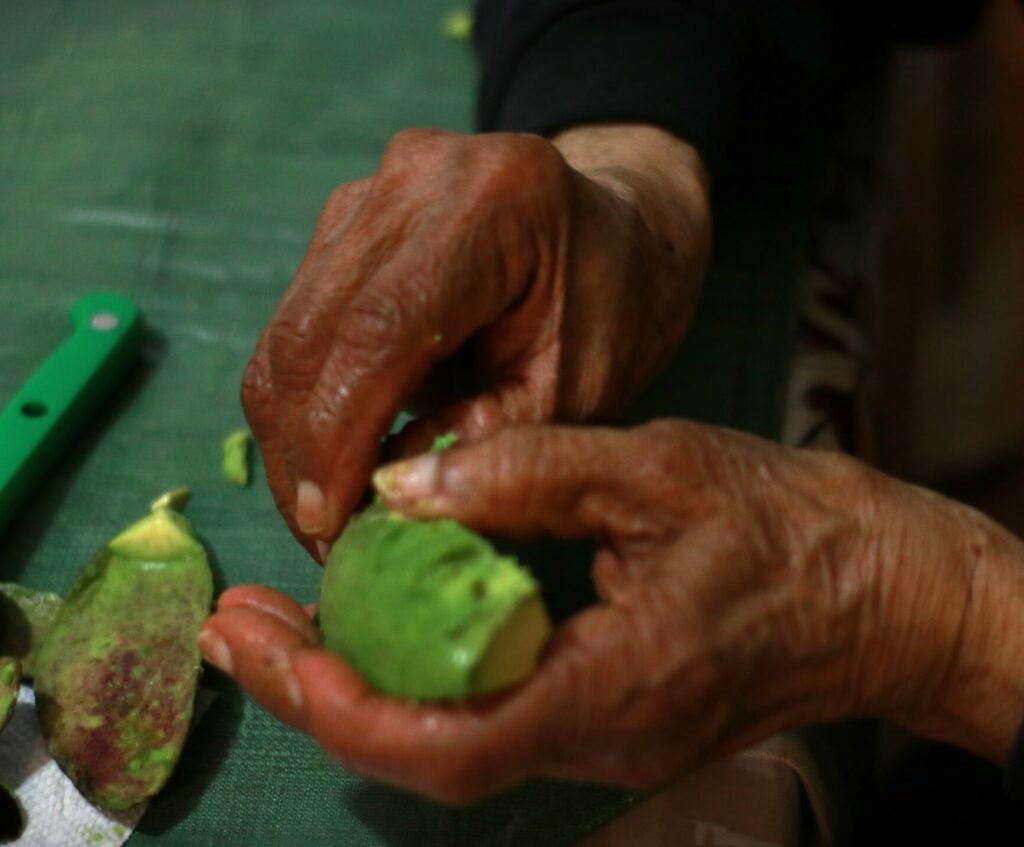by Raisa Zannat
My grandmother Razia Khaleque was a strong and resilient woman. She lost her husband at the tender age of 23. After the demise of my grandfather, she was left to raise my father and two uncles by herself. She worked as a single mother for most of her life. At a stage in her life, she decided to remarry one of her coworkers and faced scrutiny from most of her family members. Due to her marriage, my father ran away and started living with his grandparents, and my uncles often made her feel guilty about the decisions she made for herself.
On the other hand, my relationship with my grandmother was quite different. It was beautiful. She loved me unconditionally and I did her. I considered her to be my safe haven. I remember waiting for weekends to arrive. That would mean we could visit her, or she could come over to our place. My mother says that my grandmother always wanted a daughter for herself, but it never happened. Therefore, she had a strong affection for me. But I believe my grandmother was living my father’s childhood through mine. The times she couldn’t spend with my father she was trying to make up for those through me.
When I was in sixth grade, I remember transferring to a school near my grandmother’s house. That summer was extraordinarily special for me. I remember her waiting for me outside school every day to walk me home. She used to cut up mangoes and bring them to me during my break because she knew how much I loved them. At times she would bring multiple containers of beautifully peeled and cut mangoes so that my friends and I could share.
Speaking of mango, my grandmother had the perfect little mango tree in her front yard. Comparatively small but reaching the roof of her one-story home. The branches would stoop over to the roof and cover half of its space. During the spring, yellow and orange flowers would cover the tree. And in summer those flowers would turn into little green mangoes. During the rainy season, the area surrounding the tree would be filled with mangoes that couldn’t stand the weather. Often, I would sneak some salt and red chili from my grandmother’s kitchen to eat raw green mangoes straight from the tree. I would eat them while sitting on the edge of the roof with my legs dangling over the sides of the cement brim. The mangoes from my grandmother’s tree had a very distinctive taste that reminded me of rainwater and wet soil. It always smelled fresh and had the perfect balance of sourness and fruitiness. The neighbors had a mango tree as well but their mangoes weren’t as tart as ours. I was strictly prohibited from going to their side or fetching mangoes from their tree, as it was considered a bad manner. But they would stop by with a bag of mangoes every other season as a courtesy and I appreciated them.
Growing up I have always seen mangoes as an essential item in our food list. I have seen my grandmother make pickles out of them. She made spicy pickles by marinating raw mangoes with various spices and dipping them in mustard oil. She also made translucent candied mangoes that looked like edible crystals in a jar. Various kinds of mango preserves have always been displayed in our dining hall like a bunch of prized possessions. No matter the season there was always a mango delicacy to offer. I have seen my father eat ripe mangoes mushed with rice and milk. I have seen my aunts make fruit leathers with sun-dried mango puree which was meant to last for a while, but could never because it would be devoured instantly. I have eaten lentil soup made with seasonal sour mangoes which tasted divine. One time I visited the suburbs and a girl from the neighborhood brought me a jar of dried sliced mangoes that looked like mushrooms. Upon asking she mentioned it was made from mangoes that fell off the tree during a storm. It was then washed with salt, sliced, and air-dried. She taught me how to enjoy it mixed with red chile and salt. Even though hesitant at first after tasting it, I remember having it every other evening for the rest of the season.
Considered the king of fruit in the South Asian region, mango not only plays a vital role within the food system. It also influences the culture, contributes to the economy, and works as a pathway to people’s hearts. Every mango season it is expected for the oldest son-in-law of the family to bring in freshly harvested mangoes into the in-law’s home. It is one eccentric practice of South Asian culture. Friends send friends baskets of mangoes as a friendly gesture. Neighbors share mangoes that grow in their individual trees. The economy flourishes tremendously with all the exports that take place during the season.
Happiness is a sense of well-being and contentment. Different people feel happiness for different reasons. For me, it was eating; for my grandmother, it was feeding me. She used to say she feels full every time she sees me smile after eating. Maybe her contentment did rely on my fulfillment. All the efforts she put into making me feel comfortable and safe throughout the small amount of time she was with us left me with a sense of responsibility. It taught me that love and kindness are meant to be shared. It is a teaching that grows within me every passing year. Just like her mango tree that is growing and spreading love through her mangoes. Even though my grandmother is not here, her essence still lingers, and her love is still felt. Every passerby who walks in front of her house carries a bit of my grandmother’s love with them. Everyone who enjoys the mangoes relishes a part of the love that my grandmother had to offer. And every time I get a whiff of rain and wet soil, it takes me right back to my grandmother’s arms. Where love is abundant and I am safe.
Raisa Zannat is an Advertising and PR student at City College, specializing in Journalism. She holds an Associate of Arts in English from LaGuardia, where she served as a Student Success Mentor and co-editor for the Lit magazine’s 2023 edition. Originally from Dhaka, Bangladesh, Raisa relocated to New York in 2019. Currently, she is focused on gaining experience in marketing and advertising, aiming for a managerial position in an agency. Additionally, Raisa harbors a keen interest in academia and aspires to pursue a Ph.D. for future teaching endeavors.
Photograph: “Mama Nieve y su Aguacate,” Joel Pazmiño.

